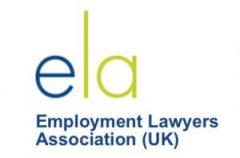The Government says rent debt accrued during pandemic closures must be ‘ringfenced’
According to the British Property Federation there is an estimated £7.5 billion of commercial rent in arrears in the UK. In a policy update in August the Government stated that any rent that was accrued due to Covid-19 restrictions must be dealt with separately from other rent liabilities to ‘provide the breathing space needed’ for negotiations between tenants and landlords as they try to resolve the issue.
Ringfencing of rent debt accrued by businesses affected by enforced pandemic closures
The Government plans to bring in legislation that will ringfence rent debt accrued during the pandemic by businesses affected by enforced closures. This will separate this debt from the rest of the lease, and landlords will be expected to make allowances for this debt and share the financial burden of Covid-19 with their tenants. The period of arrears to be ring-fenced will vary by industry sector and will relate to the period of time during which that industry was subject to Covid-19 restrictions.
Revised Code of Practice and arbitration
The Government has stipulated a process of binding arbitration should be undertaken between landlords and tenants for situations where the parties cannot reach agreement so that a legally binding agreement can be determined.
The Government is entrusting that most landlords and tenants will be able to come to some form of resolution using a revised Code of Practice that will facilitate negotiations between parties and be given legal force. The current voluntary Code of Practice, which was published in June 2020, was designed to encourage commercial tenants and landlords to work together to protect viable businesses.
In our experience, the majority of commercial property owners and tenants are working collaboratively to agree on rent concessions and reversionary short-term leases, in an attempt to share the financial burden of lockdown during the pandemic. By doing they hope to avoid tenants going into insolvency, leaving landlords with no rent, difficulty in securing a new tenant at a similar rent and possibly even a liability to pay rates on the empty property.
However, in some cases, there is hesitancy between tenants and landlords to instigate direct discussions on which to base negotiations and we have helped start these conversations, acting as a third party in exploring the options. Whilst we would encourage discussions, both sides should resist the temptation to reach an informal agreement as that may result in unintended consequences. Our advice is that any agreement to vary the existing terms should be very carefully considered and concessions, time limits, interest payments and mechanisms for ending the agreement are documented.
Coronavirus Act 2020 continues until 25 March 2022
Section 82 of the Coronavirus Act 2020, which prevents landlords of commercial properties from being able to evict tenants for the non-payment of rent, will continue until 25 March 2022, (unless legislation is passed ahead of this), in order to provide sufficient time for this new process to be put in place. The use of Commercial Rent Arrears Recovery (CRAR), which normally gives landlords the ability to seize goods owned by the tenant in lieu of rent owed unless the tenant has more than 554 days’ worth of rent arrears, has also been restricted until this date.
Restrictions on winding up petitions and statutory demands
The Government has also extended the restrictions against serving a winding-up petition on the basis of a statutory demand implemented through the Corporate Insolvency and Governance Act 2020 until 30 September 2021. The Government is further restricting the issue of statutory demands and winding up petitions against a tenant company for a further 3 months from 1 July 2021 where the tenant is unable to pay its debts due to the impact of Coronavirus.
Tenants with means to pay must do so
Government is clear that those tenants who have not been affected by closures and who have the means to pay, should pay any monies due to landlords and landlords will be able to charge interest on rent accrued from the end of the ringfenced period in accordance with their lease. Additionally, the Government expects commercial tenants to begin paying rent as per their lease from the point of restrictions being lifted for their sector. Its Code of Practice makes it clear that tenants must:
• pay service and other charges in full;
• pay as much of their rent as they can afford; and
• seek agreement from property owners where support is needed.
In recent cases such as the Bank of New York Mellon v Sports Direct the High Court has rejected arguments put forward by commercial tenants which sought to justify withholding rent in light of the pandemic. The High Court held that the existing Code of Conduct provided no authority for rent to be withheld and does not affect the contractual obligations between the parties. A contract or lease is either frustrated (and cannot be performed) or it is not – there is no such concept in law as “temporary frustration”.
Eviction and court claims
Landlords will be able to evict tenants for the non-payment of rent prior to March 2020 and after the end of restrictions for their sector and those who have not been affected by business closures during this period. Where a tenant breaches other terms of their contractual agreement, landlords will still be able to move to evict them if such breaches give rise to a right to forfeit.
Legally all rent arrears remain due and owing (regardless of whether they will be ring-fenced in the future) and landlords can issue money claims for them. If judgment is obtained this can be enforced through enforcement officers or other means. Landlords should though bear in mind that they may well be penalised for the costs of the arbitration as the new scheme may punish parties that have not negotiated in ‘good faith’ over ring-fenced arrears. Some tenants may also try to delay court proceedings regarding debt that may be ‘ringfenced’ until the new legislation comes into effect.
Whilst tenants will appreciate the breathing space afforded by the Government’s new measures, particularly those operating in sectors hard hit by pandemic closures, landlords with their own debt facilities to service will no doubt be concerned at further delays and what many consider to be pressure to waive debts owed. Landlords, tenants and lawyers now keenly await details of the legislative solution proposed by the Government.
For more information on commercial landlord and tenant debts, please contact Frances Watts in our Commercial Property team on E: frances@thpsolicitors.co.uk or Laura Colebrook in our Dispute Resolution team on l.colebrook@thpsolicitors.co.uk or call Tel: 0118 920 9499






